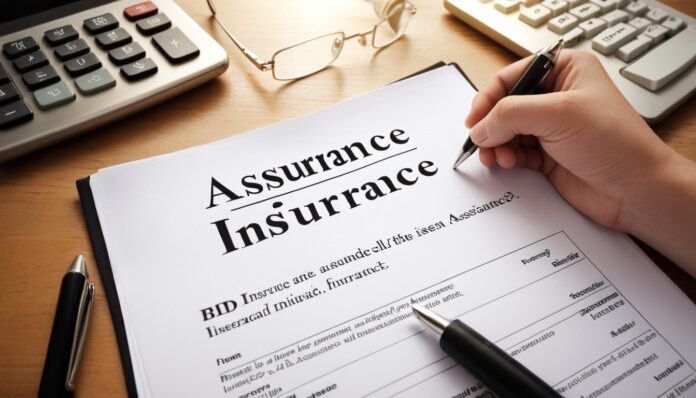Assurance vs. Insurance: Understanding the Subtle Differences
Assurance Insurance Financial security is a top priority for many. To achieve it, people often turn to insurance and assurance products. While the terms are frequently used interchangeably, there are subtle distinctions between them. Understanding these differences is crucial for making informed decisions about your financial well-being.
What is Insurance?
Insurance refers to a financial contract between an individual (policyholder) and an insurance company (insurer). The policyholder pays a premium at regular intervals (monthly, annually) in exchange for financial protection against specific risks or events. If the covered event occurs, the insurer provides compensation to the policyholder to recover losses or manage financial burdens.
Some common examples include:
- Auto insurance: Protects against financial losses resulting from car accidents.
- Home insurance: Provides coverage for damage or loss to a property due to fire, theft, or natural disasters.
The key characteristic of insurance is that it protects against uncertain events. The policyholder pays a premium for the possibility of a future payout, which may or may not happen.
What is Assurance?
Assurance, in the financial context, often refers to a specific type of life insurance – whole life insurance. Unlike term life insurance (which provides coverage for a set period), whole life insurance guarantees a payout upon the policyholder’s death. Additionally, whole life policies often have a cash value component that grows over time.
However, the term “assurance” can have a broader meaning as well. It can encompass any financial product that offers a guaranteed benefit upon the occurrence of a specific event. For example, some retirement plans might be called “assurance plans” because they guarantee a certain income stream upon reaching retirement age.
Choosing Between Insurance and Assurance
The best option for you depends on your individual needs and financial goals. Here are some factors to consider:
- Need for Guaranteed Payout: If you want to ensure a financial legacy for loved ones or secure a specific retirement income, assurance might be a better choice.
- Budget: Assurance products typically have higher premiums compared to term life insurance.
- Risk Tolerance: If you are comfortable with some risk, insurance might be a more cost-effective option.
- Financial Goals: Consider whether you need the cash value component offered by some assurance plans.
Conclusion
Insurance and assurance are both valuable tools for financial planning. Understanding the subtle differences between them will help you make informed decisions to achieve your financial goals and secure a brighter future for yourself and your loved ones. It’s always wise to consult with a qualified financial advisor to assess your specific needs and recommend the most suitable product for your situation.











